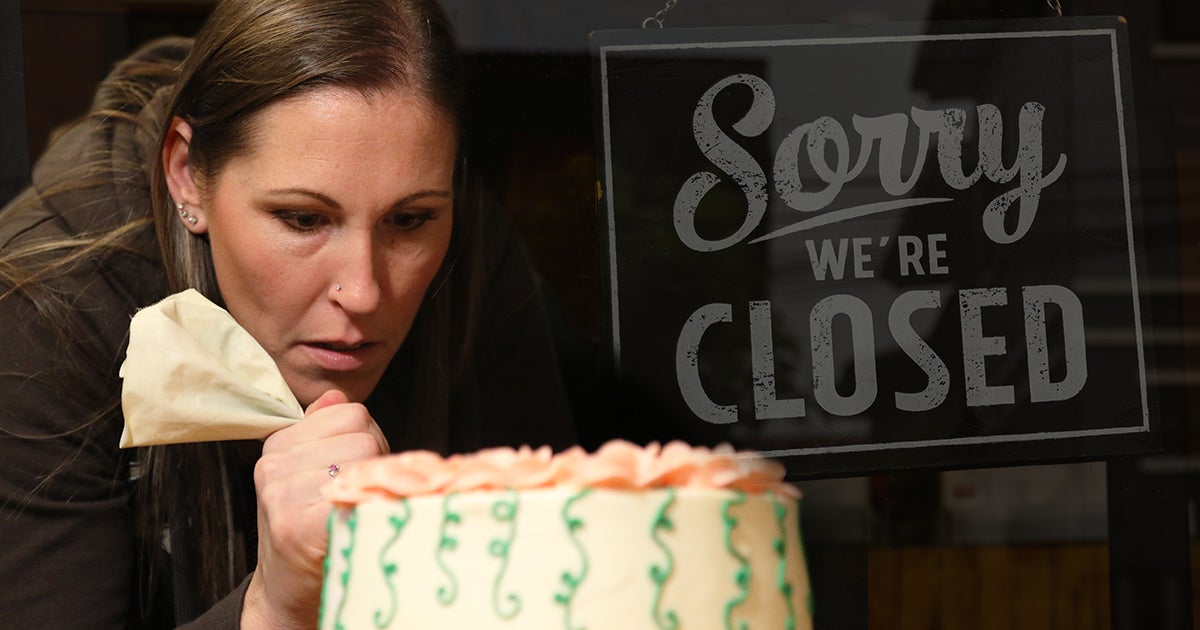
by Jorge Gomez • 6 min read
The Oregon Court of Appeals recently issued a ruling involving our clients, Christian bakers Aaron and Melissa Klein.
It ordered reconsideration of the decision that forced the Klein family bakery, Sweet Cakes by Melissa, out of business by fining them $135,000. The Kleins had turned down a request to create a custom cake for a same-sex wedding. The court also admitted the Oregon Bureau of Labor and Industries—a bureaucratic state agency—acted with hostility against them because of their religious beliefs.
But the state of Oregon is trying to have its cake and eat it, too. The court said the Kleins violated the law by operating their business in accordance with their beliefs. Incredibly, it’s sending the case back for a do-over to the very same agency that showed anti-Christian bias toward the Kleins.
This means the fight for SweetCakes by Melissa is not over. Make no mistake, this ruling is dangerous to religious freedom. First Liberty intends to appeal it to the Oregon Supreme Court and, if necessary, to the U.S. Supreme Court.
How We Got Here: The Search for Sweet Justice
Artistic expression—like her faith—has always been in Melissa’s DNA. As she puts it: “For me, it was so gratifying to know that I was contributing to the most important day in people’s lives, while at the same time doing what I loved most—creating art as a way of expressing my faith.”
Running her family bakery was much more than just a business to Melissa. It was her passion, her form of expression, a second home—and a legacy she and her husband even hoped to pass on to their five children. In her own words, it was a “dream come true.” And since the opening of SweetCakes by Melissa in 2007, she’d always been happy to serve everyone who entered her shop, but she couldn’t endorse messages that conflicted with her faith.
When the State of Oregon decided she was wrong for running her business according to her faith, that dream came to a crashing halt.
“Having to shut down the shop was devastating,” said Melissa. “Watching something our family had worked so hard on for years to build just disappear in such a short time—it crushed me. I felt like I’d lost a part of myself.”
The crippling $135,000 penalty, however, wasn’t enough punishment. State officials felt the need to force Melissa to conform to the cultural orthodoxy. Toleration of different beliefs wasn’t enough. The government sought to coerce her to celebrate the ideas with which she disagrees, even suggesting her family needed to be “rehabilitated” in their beliefs.
Such blatant hostility is unconstitutional. Legal precedent has made it clear that the Constitution requires government officials treat religious Americans equally and respect their beliefs.
Oregon courts refused to restore Melissa’s constitutional rights and First Liberty took the case to the U.S. Supreme Court, which sent the case back to Oregon officials with a clear message: Melissa Klein is “entitled to the neutral and respectful consideration” of her claims.
The nation’s highest court also said Melissa deserves the same protection from religious discrimination afforded to cake artist Jack Phillips of Masterpiece Cakeshop in an important victory for religious liberty. The Court pointed out that “government has no role in deciding or even suggesting whether the religious grounds for a conscience-based objection are legitimate or illegitimate.”
But after two years of deliberating this case, the Oregon Court of Appeals chose to ignore the Supreme Court’s guidance.
It should have ended the state’s hostility toward Aaron and Melissa. Instead, it ordered them to return to a government agency that acted as both prosecutor and judge—the same one that demonstrated anti-religious bias.
A Case that Could Impact Millions of Americans
For the Kleins—and for all faith-based, small business owners—a win in this case would be immensely important.
In today’s pervasive cancel culture, there’s no shortage of people of faith facing censorship or retribution for expressing their beliefs. Of course, it’s not just religious citizens who are targeted. Faith-based businesses and organizations are also in the crosshairs.
In many cases, government officials and outrageous court rulings discriminate directly against businesses, ministries and other religious groups—levying outrageous punishments or forcing them to shut down altogether. That’s unjustified. No American should have to fear losing their business, their livelihood or their job for living out their faith.
The stakes in Sweet Cakes by Melissa could not be higher. At the core of this case is whether the government can force anyone in America to choose between their faith and their livelihood, and whether government officials have the legal authority to force businesses to close if a person of faith declines to participate in an event that conflicts with their sincerely held religious beliefs.
Please donate to First Liberty today and help replenish our resources for the next phase of this critical battle.
Aaron and Melissa deserve justice after fighting through the courts for more than seven years. With your support, we can deliver a victory for them—and for many other business owners facing the threat of closure because of their beliefs.